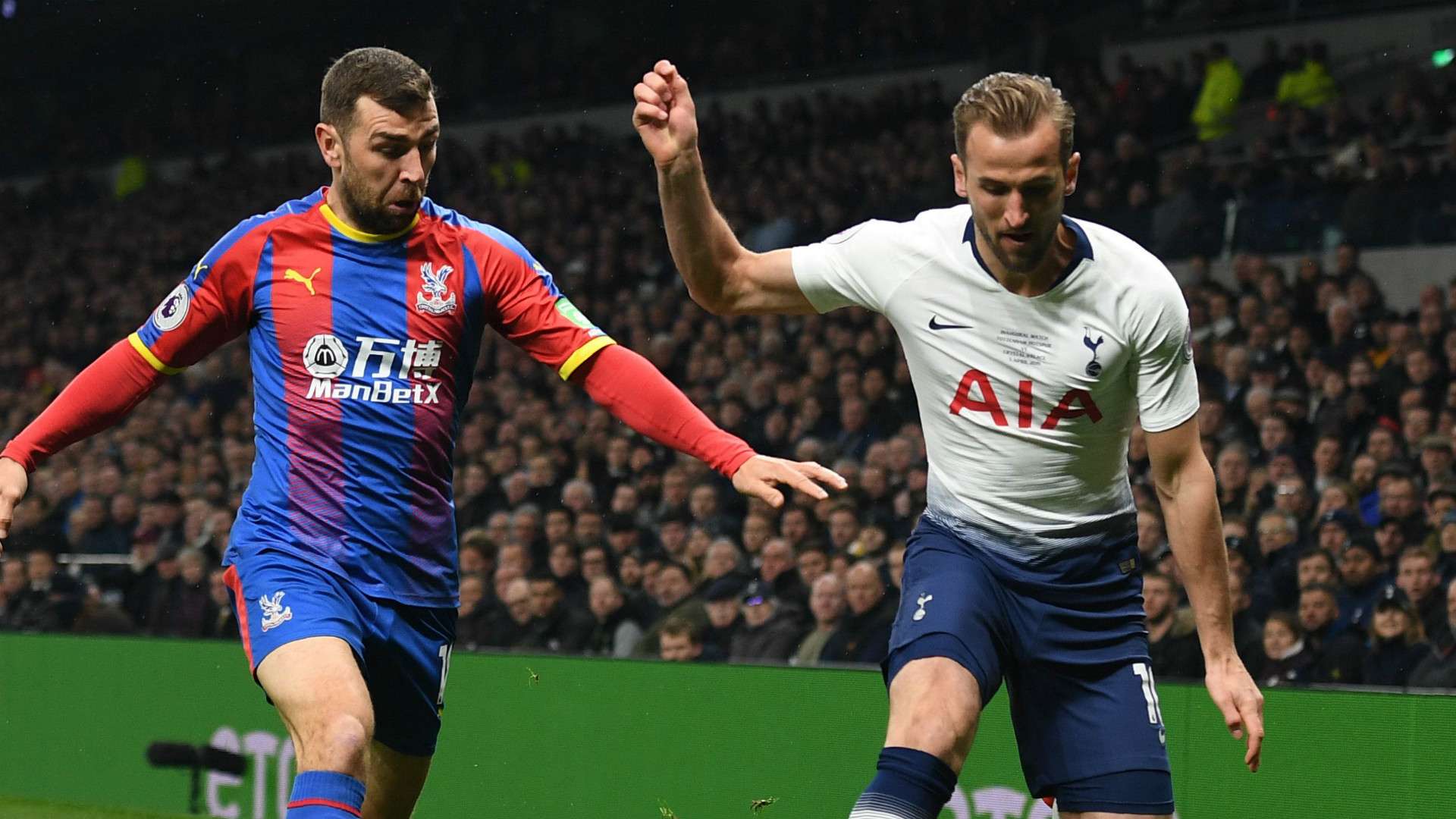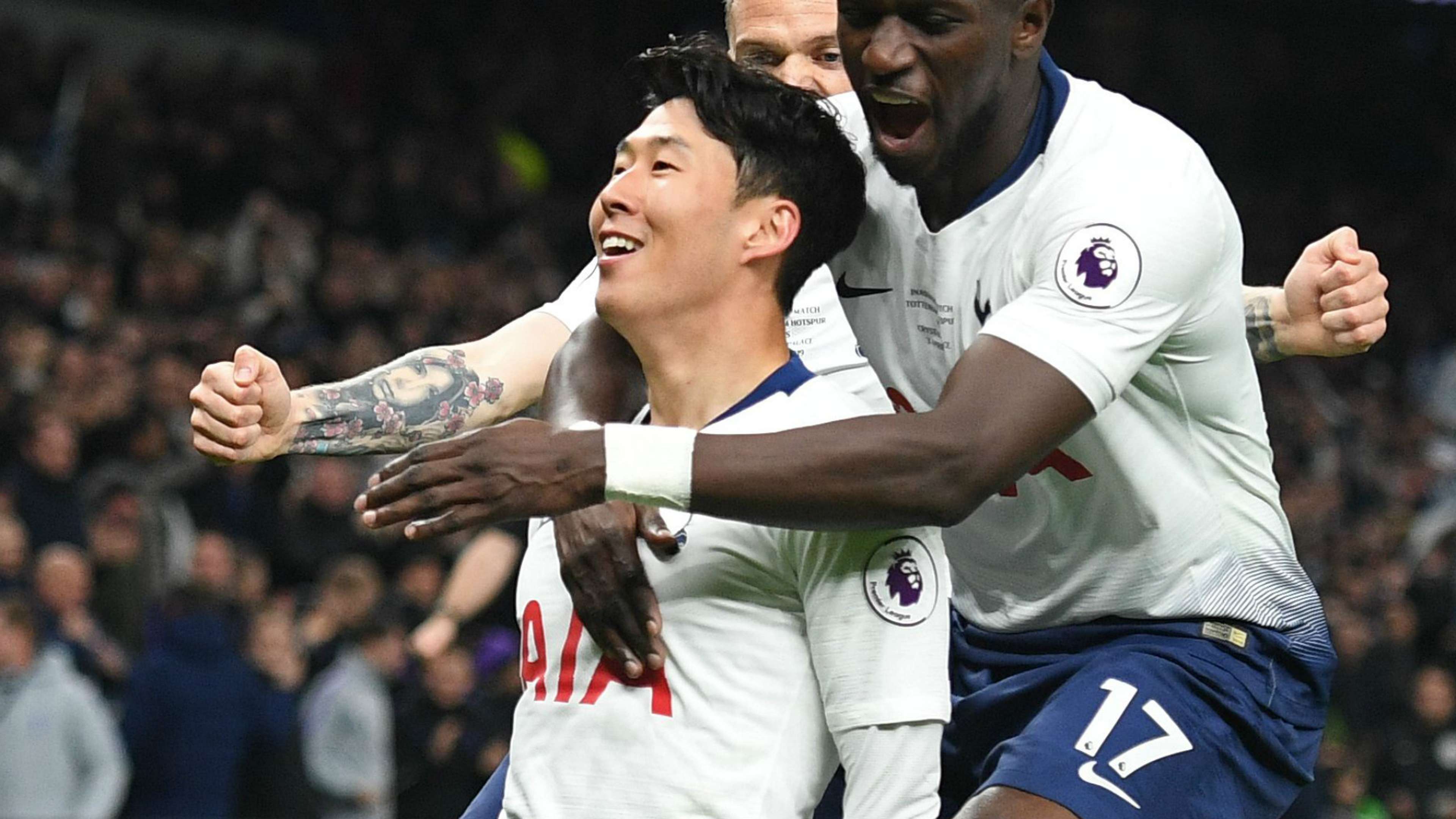Welcome home, Son! It might have been scrappy, it might have been undeserved, but Wednesday's 2-0 victory over Crystal Palace came at the right time for Tottenham Hotspur.
It wasn't taking long for the welcome party vibes to wear off, with the home fans in their new surroundings already worrying about what might happen on the pitch.
They had plenty of territory in the first half, but with little punch. There were jittery moments for the Palace goalkeeper Vicente Guaita, as well as a few shots flying just by the post.
But underneath this was the Spurs of the last few weeks; they often found themselves at the edge of the box but where once that final pass or shot would find its target, this time it did no such thing.
That was until Heung-min Son struck the first of what he will hope to be many goals in his new home. Son has reason to believe he might be the Tottenham player of the season; he has carried them at times and been the perfect team-mate at others.
Here, he benefitted from a good Christian Eriksen pass following a Luka Milivojevic error to edge his side ahead in a game they came to win.
The Dane notched a second with 10 minutes to go to send the locals home happy, dreaming of what may come here.
These three points put an end to a terrible sequence of form. Something had been amiss at Tottenham – in the Premier League at least – since the middle of February.
A run of five matches without a win – and only a solitary point earned against Arsenal in the North London Derby – had reduced Spurs' outside shot at the title to nothing.
Their advantages in the quest for Champions League football had also frittered as the field first narrowed behind them and then caught up.
All the while, they toiled in a place they’d rather not be: Wembley.
Everyone had had enough of it. It was only supposed to be a season-long hiatus in the unloved national bowl. But on and on it went, beset by one delay after another.
Mauricio Pochettino had no answers. Everything should have been coming together for him and his squad but their league campaign had suffered.
Harry Kane was back in the team to little avail. They didn’t miss a beat without their captain, reeling off four consecutive Premier League wins and laying waste to Borussia Dortmund in the first leg of their Champions League last-16 tie.
Spurs worked so hard in those games to deliver goals and results in his absence that his return actually seemed a hindrance. Dele, Son, Eriksen and even Fernando Llorente had stood up gamely to cover for the skipper.
 Getty Images
Getty Images
With him back in the side, however, they tanked. He was sharp with through balls and on the drive here, though, and his efforts eventually yielded the second goal for Eriksen. He is firmly bedded back in.
They had all looked to this game for some relief. Coming to the new Tottenham Hotspur Stadium – as it will be known until a naming partner is sourced – didn’t feel like a journey to a ground whose team was clinging on by their fingernails. It felt like the first day of a new era.
The stadium looms on the horizon, incongruous against the ordinariness and lived-in nature of the buildings around it. It resembles an alien spaceship sent to Earth from the future.
There has been a lot of time and money spent on this place. Current estimates are passed the £1 billion ($1.3bn) mark.
Spurs have been living under austerity for some time and haven’t spent a penny since January 2018. There is a pride to be taken in the fact that their team has been bought and paid for on a budget unrecognisable to those of their rivals.
This place wasn’t handed to them by a benefactor either. It’s all their own work, from the British-built cockerel sitting atop the awesome South Stand to the concrete on the floors of the concourses, mixed as it is with the demolished stone from the old White Hart Lane.
Pochettino’s team outgrew that stadium; even its pitch was too small for the modern era by the time they left just under two years ago. From the moment the Argentine arrived in this postcode, there was a sense that Pochettino would be dragging them upward and out of their confines.
They have had to endure the taunts and barbs of rival fans – particularly Arsenal and Chelsea – in the past few seasons about the lack of tangible success achieved on the field.
That’s all well and good for Arsenal, who had a 20-year head start thanks to the vision of Arsene Wenger, while Chelsea benefitted from mineral wealth which bypassed the Russian people and ended up in the hands of Roman Abramovich.
What Tottenham are aiming to do is unprecedented in the modern game. They are seeking to dislodge established clubs, spending a fraction of their money, and doing it in a stadium they built from the ground up.
It felt like this day might never come. Eighteen years have passed since Daniel Levy first dreamed of this idea, one that would lift Spurs into the big time and one which could act as a first decisive step in regenerating this part of north London.
They are here now, up and running, and back in Tottenham where they belong.




